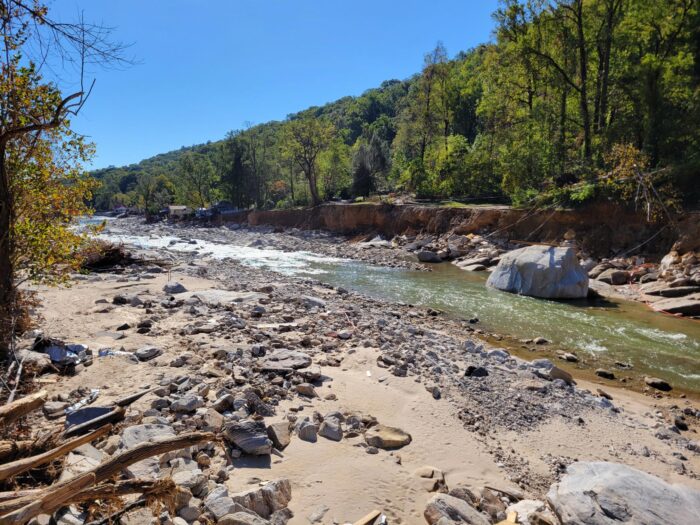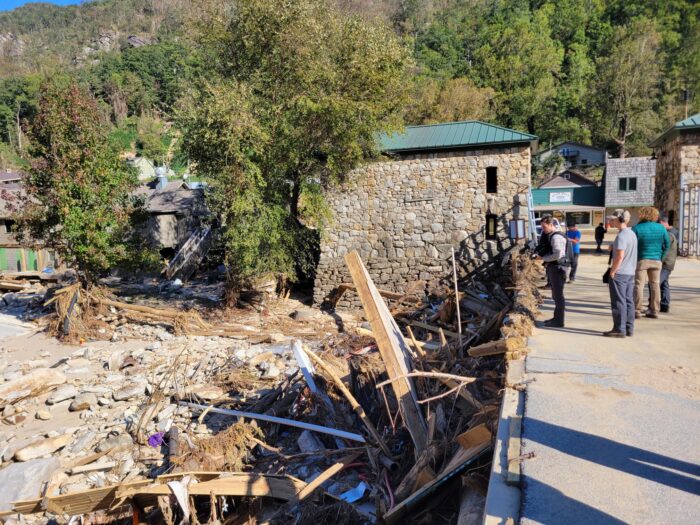On January 14, 2025, the U.S. Environmental Protection Agency (USEPA) released a draft risk assessment evaluating the potential human health risks associated with perfluorooctanoic acid (PFOA) and perfluorooctane sulfonic acid (PFOS)—two PFAS in biosolids. This announcement marks a critical step in advancing the scientific understanding of these persistent chemicals, often referred to as “forever chemicals,” due to their resistance to degradation and tendency to accumulate in the environment and human body.

Why Are PFAS in Biosolids a Concern?
Biosolids are nutrient-rich organic materials resulting from domestic sewage treatment at wastewater treatment plants. These materials are often applied as fertilizers to agricultural or nonagricultural land, disposed of in landfills, or incinerated. While biosolids are considered beneficial when land-applied, their potential contamination with PFOA and PFOS can pose health risks.
PFOA and PFOS belong to a class of chemicals known as per- and polyfluoroalkyl substances (PFAS), which are widely used in industrial and consumer products such as nonstick cookware, water-resistant clothing, and firefighting foams. Due to their persistence and bioaccumulation, concerns have grown over potential health effects linked to PFAS exposure.
Key Findings of the Draft Risk Assessment on PFAS in Biosolids
The USEPA’s draft risk assessment evaluates potential human health risks for populations likely to be exposed to PFOA and PFOS from biosolids. The assessment considered exposure through three disposal methods—land application, surface disposal, and incineration. Notably, the assessment found that in some scenarios, exposure levels could exceed USEPA’s acceptable risk thresholds. Key findings include:
Potential Risks from Biosolids Application:
Risks were identified for people living on or near sites where biosolids containing PFOA or PFOS were applied as fertilizer or soil amendments. Exposure pathways include the consumption of food crops, animal products, and drinking water sourced from affected areas.
Higher Risks with Long-Term Use:
The assessment indicated significant risks associated with long-term land application scenarios, particularly when biosolids are applied over multiple decades at high rates (e.g., 40 consecutive years at 10 dry-metric-tons per hectare).
Data Gaps in Incineration:
The draft highlighted insufficient data to quantify risks from biosolid incineration, indicating the need for further research in this area.
This draft report underscores the importance of proactive measures to control PFAS at their sources to mitigate downstream risks in biosolids. It also highlights the need for continued research to better understand exposure pathways and long-term health implications.
Complexity of Risk Factors of PFAS in Biosolids
The draft risk assessment emphasizes that the potential human health risks from PFOA or PFOS in biosolids are contingent upon a multitude of variables. Factors such as the concentration of these compounds in the applied biosolids, the frequency and rate of application, regional climate conditions, soil characteristics, and specific agricultural practices all contribute to the overall risk profile. For instance, certain farming practices may be especially vulnerable to PFOA or PFOS, and adjustments may be necessary to mitigate risks.
The Regulatory Landscape and Emerging Challenges
The release of this draft risk assessment comes at a time of regulatory uncertainty, as recent changes in U.S. administration have led to shifts in environmental policy. It is essential to note that this draft report is open for public comment and is subject to change before finalization. As such, the future regulatory landscape for PFAS in biosolids remains fluid.
EnviroScience recognizes that while regulatory adjustments may influence compliance requirements, the potential health risks associated with PFAS exposure remain a critical concern for stakeholders, including municipalities, wastewater treatment plants, agricultural producers, and affected communities.
Available Resources from the USEPA
To support stakeholders in navigating the complexities of this issue, the USEPA has provided several fact sheets for additional information:
These resources provide detailed insights into the draft risk assessment and its implications for various stakeholders.
How EnviroScience Can Help
At EnviroScience, we understand the complexities of PFAS contamination and are committed to helping clients address these emerging risks. Our environmental consulting expertise and advanced analytical capabilities make us your trusted partner for managing PFAS-related challenges.
Comprehensive PFAS Sampling and Analysis:
EnviroScience provides precise sampling and analysis services for PFAS in biosolids, soil, water, and other environmental media. Our team uses state-of-the-art technology to deliver accurate results that inform effective risk management strategies.
Regulatory Compliance Support:
We help clients navigate complex regulations and develop strategies to meet evolving federal and state requirements. Our regulatory experts stay up-to-date on the latest policy changes to ensure compliance with current standards.
Risk Assessment and Mitigation:
EnviroScience offers tailored risk assessments and practical solutions to mitigate the impact of PFAS on your operations and the environment. Our multidisciplinary team of scientists, toxicologists, and engineers collaborates to provide comprehensive risk management services.
Looking Ahead
As the regulatory landscape evolves, EnviroScience remains committed to providing the expertise and support clients need to navigate the complexities of PFAS management. We continue to monitor ongoing regulatory developments and participate in public comment opportunities to stay informed about potential policy changes.
Stakeholders are encouraged to participate in the public comment process to help shape future regulatory actions. The comment period for the USEPA’s draft risk assessment on PFOA and PFOS is open for 60 days following its release.
Learn More
Stay informed about the latest developments in PFAS research and regulations. Visit our PFAS Services page to learn how EnviroScience can support your efforts to address these challenges.
For more information or to discuss how EnviroScience can assist with your PFAS-related needs, Contact Us today.
Few environmental firms in the country retain EnviroScience’s degree of scientific know-how, talent, and capability under one roof. The diverse backgrounds of our biologists, environmental engineers, scientists, and divers enable us to provide comprehensive in-house services and an integrated approach to solving environmental challenges—saving clients time, reducing costs, and ensuring high-quality results.
Our client guarantee is to provide “Excellence in Any Environment,” meaning no matter what we do, we will deliver on our Core Values of respect, client advocacy, quality work, accountability, teamwork, and safety. EnviroScience was created with the concept that we could solve complex problems by empowering great people. This concept still holds true today as our scientists explore the latest environmental legislation and regulations and incorporate the most up-to-date technology to gather and report data.
EnviroScience expertise includes but is not limited to aquatic surveys (including macroinvertebrate surveys and biological assessments); ecological restoration; ecological services (including impact assessments, invasive species control, and water quality monitoring); emergency response; engineering and compliance services; endangered mussel surveys; laboratory and analysis; stormwater management; sustainability services; threatened and endangered species; and wetlands and streams (including delineation and mitigation). Further, EnviroScience is one of the few biological firms in the country that is a general member of the Association of Diving Contractors International (ADCI) and offers full-service commercial diving services.
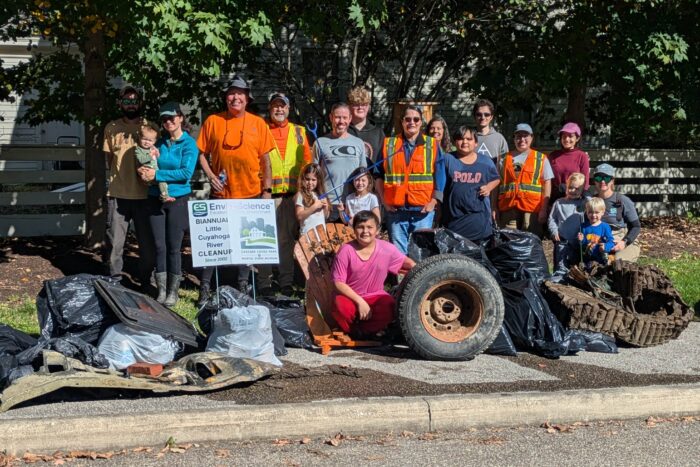
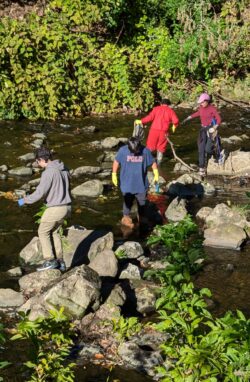 Who: Anyone willing to help! We’ve had volunteers of all ages at this biannual event.
Who: Anyone willing to help! We’ve had volunteers of all ages at this biannual event. Located in Newbury Township, Geauga County, Veterans Legacy Woods is a public park owned and managed by the
Located in Newbury Township, Geauga County, Veterans Legacy Woods is a public park owned and managed by the 
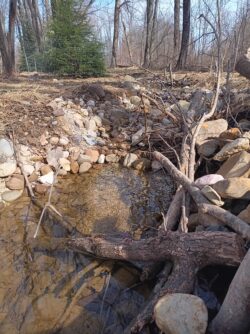 To stabilize streambanks and restore native plant communities, EnviroScience’s vegetation services team reforested approximately 9.5 acres of riparian buffer. More than 2,400 native trees and shrubs were installed, selected based on soil and moisture conditions to ensure long-term survivability.
To stabilize streambanks and restore native plant communities, EnviroScience’s vegetation services team reforested approximately 9.5 acres of riparian buffer. More than 2,400 native trees and shrubs were installed, selected based on soil and moisture conditions to ensure long-term survivability. Veterans Legacy Woods is more than a restoration site—it’s a vibrant, visitable natural area within the Geauga Park District. Public trails now weave through reforested slopes, emergent wetlands, and the newly built stream, offering a firsthand look at how
Veterans Legacy Woods is more than a restoration site—it’s a vibrant, visitable natural area within the Geauga Park District. Public trails now weave through reforested slopes, emergent wetlands, and the newly built stream, offering a firsthand look at how  When compliance is at stake, data quality matters. At EnviroScience, our NELAP certification for
When compliance is at stake, data quality matters. At EnviroScience, our NELAP certification for 
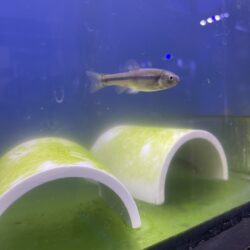
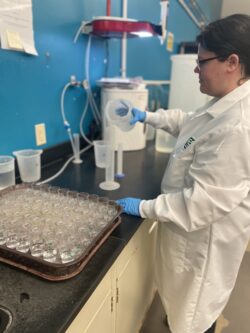
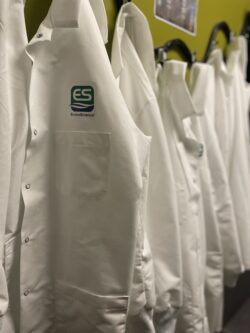
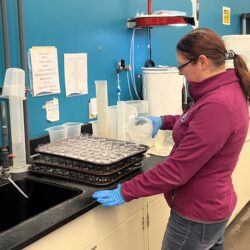 Choosing a NELAP-accredited laboratory helps ensure:
Choosing a NELAP-accredited laboratory helps ensure: If your project involves toxicity testing, choose a laboratory with proven credentials.
If your project involves toxicity testing, choose a laboratory with proven credentials.
 Luke brings extensive experience in
Luke brings extensive experience in 


